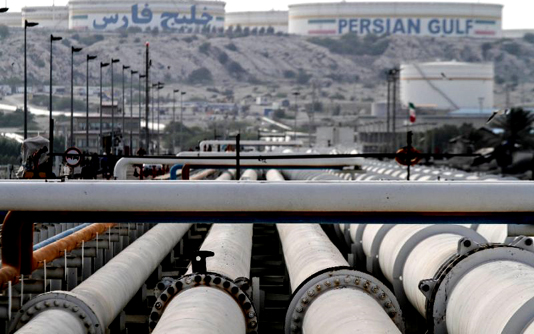VIENNA, Dec 7, 2018 (BSS/AFP) – OPEC will meet with 10 partner countries,
including Russia, on Friday to try to thrash out an agreement on oil
production cuts, a day after the group’s members failed to reach a deal.
The oil cartel had been expected to sign off on cuts to stem a plunge in
oil prices at a meeting on Thursday, but it broke up without an accord.
“No, I am not confident” about the chances of a deal, Saudi oil minister
Khalid Al-Falih told reporters after a long day of negotiations at OPEC’s
headquarters in Vienna.
However, OPEC and its non-cartel members — who account for around half of
global output — agree on one thing: a glut on the market has led to oil
prices falling by more than 30 percent in the space of two months.
However, the major players among the oil giants all have their own reasons
to look to others to act.
For Russia, which leads the non-member countries in the so-called OPEC+
alliance, “it’s much more difficult to cut than for other countries, because
of our climatic conditions,” Russian Energy Minister Alexander Novak said on
Thursday in Saint Petersburg.
Saudi Arabia, meanwhile, has to bear in mind pressure from the US, after
President Donald Trump demanded in a tweet on Wednesday that OPEC not boost
prices.
In addition, the kingdom’s diplomatic position has been weakened by the
furore over the killing of journalist Jamal Khashoggi.
Though al-Falih insisted that “we don’t need permission from anyone to cut”
production, the figure of a million barrels put forward by Saudi Arabia was
lower than the reduction expected by the markets.
– Market jitters –
Iran, Saudi Arabia’s geopolitical rival and OPEC’s third-largest producer,
suggested it was in favour of deeper cuts — while asking to be exempted from
them because of the effects of US sanctions targeting its oil sector.
The thorny question of exemptions, which will also be sought by Venezuela
and Libya according to the Bloomberg news agency, could be crucial for
Friday’s talks.
The amount and the timetable of any cuts imposed by Russia will also be a
key sticking point.
Iraqi oil minister Thamir Abbas Al Ghadhban said he was still “hopeful” an
agreement could be reached during talks on Friday.
However, markets displayed doubts with fresh falls in oil prices sparking a
sell-off of stocks by investors.
The price of a barrel of Brent, the European benchmark, sank below the
symbolic $60 mark because the reduction of around one million barrels floated
by Saudi Arabia was below what markets had been expecting.
Analysts say that the details of any agreement will be key in determining
what happens next to prices.
“If it’s one million (barrels) excluding Iran, then it’s in fact 1.2, 1.3,
which should be supportive of price,” Abhishek Deshpande, an oil analyst at
JP Morgan, told AFP.
This would be because the markets would price in the drop in Iran’s
production expected due to sanctions.
“But if (the agreement) is including Iran, that’s not enough,” Deshpande
added.
In June, OPEC and its partners agreed to allow for a boost in production by
Saudi Arabia and Russia to compensate for the expected losses in production
from Iran after the US dramatically withdrew from the Iran nuclear deal in
May and vowed to re-impose sanctions.
However, the US then granted temporary waivers to eight allies to allow
them to carry on importing Iranian oil, contributing to a plunge in oil
prices which wiped out the gains seen since early 2017.



